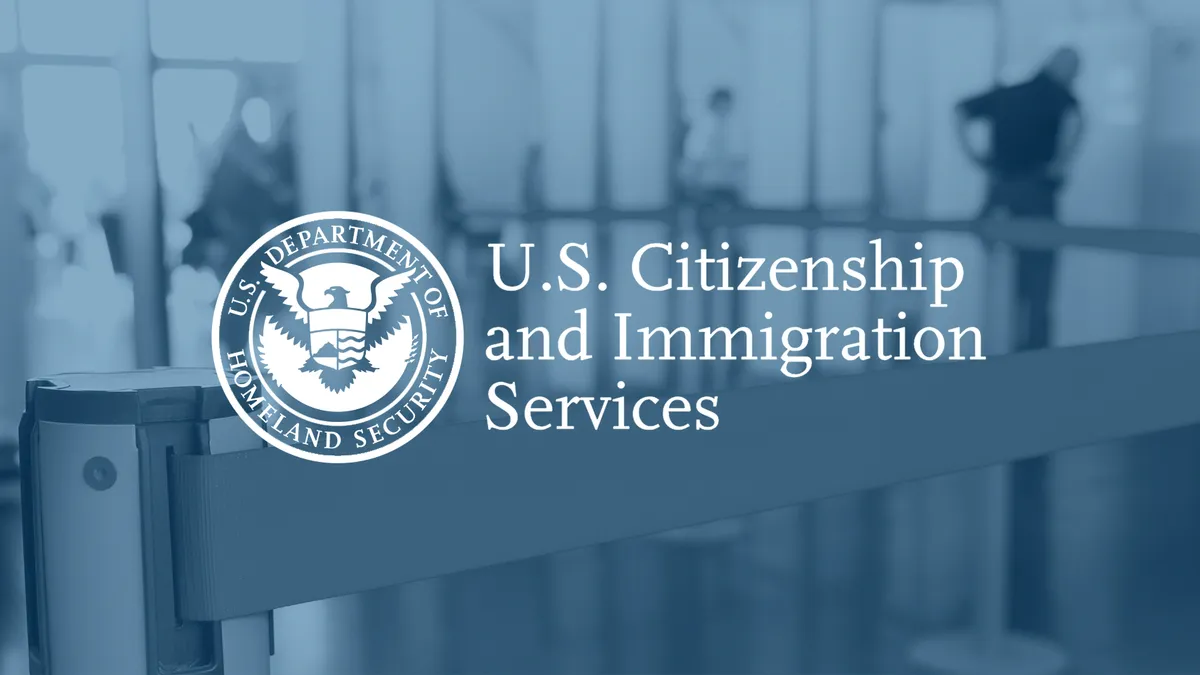Dive Brief:
- The U.S. Department of Homeland Security (DHS) today issued a final rule implementing changes to the H-1B visa program.
- Among other things, the rule reverses the order by which U.S. Citizenship and Immigration Services (USCIS) will select H-1B petitions for the standard allotment of 65,000 visas and the advanced-degree exemption, for which an additional 20,000 H-1B visas are set aside. Under the reverse selection process, USCIS will first select H-1B petitions filed on behalf of all visa holders, including those eligible for the advanced degree exemption. Then USCIS will select from the remaining petitions a number estimated to reach the advanced degree exemption. The reverse selection rule applies to petitions filed for the FY 2020 H-1B cap season. The agency said it expects the lottery reversal to increase the number of individuals with advanced degrees from U.S. institutions selected for further processing.
- The rule also implements an electronic registration requirement for H-1B cap-subject petitions, which DHS said it anticipates introducing for the FY 2021 cap season. Once implemented, it will require those seeking to file H-1B cap petitions to first electronically register with USCIS. Only petitioners whose registrations are selected will be able to file an H-1B cap-subject petition.
Dive Insight:
The H-1B process has frustrated employers in recent years. Requests for foreign workers have far outnumbered those that the program approved under the current lottery system. In fact, in the fourth quarter of 2017, the number of visa requests USCIS denied rose by 41%, and the number of requests for evidence in Q4 was greater than those in the first three quarters of the year combined. Experts were even recommending that employers reconsider how they address the process.
And while the pre-registration process will add a new, additional layer for employers, DHS said it expects the lottery system to make the visa program more productive for businesses. "These simple and smart changes are a positive benefit for employers, the foreign workers they seek to employ, and the agency's adjudicators, helping the H-1B visa program work better. The new registration system, once implemented, will lower overall costs for employers and increase government efficiency," USCIS Director L. Francis Cissna said in the news release. "We are also furthering President Trump's goal of improving our immigration system by making a simple adjustment to the H-1B cap selection process. As a result, U.S. employers seeking to employ foreign workers with a U.S. master's or higher degree will have a greater chance of selection in the H-1B lottery in years of excess demand for new H-1B visas."
The move comes just weeks after Trump's "surprising" comments that his administration was looking into issues surrounding the employment of skilled foreign workers in industries like technology. In his comments, Trump argued for a merit-based immigration system, according to The Wall Street Journal. "We have to let these great, brilliant companies have the smartest people in the world," he said.











